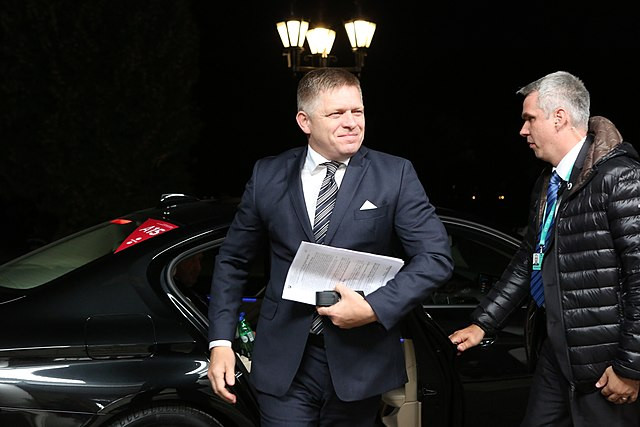Slovakia's populist Prime Minister Robert Fico was shot multiple times and gravely wounded on Wednesday in an attempted assassination. Despite the severity of his injuries, Deputy Prime Minister Tomas Taraba expressed his belief that Fico would survive the attack, stating in an interview with the BBC's Newshour program, "Fortunately, as far as I know, the operation went well and I guess in the end he will survive."
The shooting occurred outside a cultural center in the town of Handlova, nearly 140 kilometers (85 miles) northeast of the capital, Bratislava, where Fico was attending a government meeting. According to government officials, five shots were fired, with one bullet entering Fico's stomach and another hitting his joints. The 59-year-old pro-Russian leader was immediately transported to a hospital in Banská Bystrica, 29 kilometers (17 miles) from Handlova, for emergency surgery.
Interior Minister Matus Sutaj Estok announced that a suspect was in custody and that an initial investigation had revealed "a clear political motivation" behind the assassination attempt. The attack has highlighted the deep divisions within Slovakia, a nation of 5.4 million that belongs to NATO, as Fico's return to power last year on a pro-Russian, anti-American platform has raised concerns among fellow European Union members about the country's future direction.
Since his reelection, Fico has brought about a major shift in Slovakia's foreign policy, halting arms deliveries to Ukraine and prompting fears that he will lead the country away from its pro-Western course, following in the footsteps of Hungary under populist Prime Minister Viktor Orbán. Domestically, his government has pushed for controversial reforms, including changes to the criminal justice system that have sparked large-scale peaceful protests.
The assassination attempt has drawn condemnation from both domestic and international leaders. Outgoing President Zuzana Caputova, a political rival of Fico, denounced the attack as "an attack on democracy," while President-elect Peter Pellegrini, an ally of Fico, called it "an unprecedented threat to Slovak democracy." U.S. President Joe Biden, NATO Secretary-General Jens Stoltenberg, and European Commission President Ursula von der Leyen also expressed their shock and condemnation of the violence.
The recent elections that brought Fico and his allies to power have underscored the deep social divisions within Slovakia, which have been exacerbated by the ongoing war in Ukraine. Gábor Czímer, a political journalist at Slovakian news outlet Ujszo.com, noted that "Slovak society is strongly split into two camps" - one that is friendly toward Russia and another that pushes for stronger connections with the EU and the West.
As Fico fights for his life in the hospital, the nation grapples with the aftermath of this shocking attack and the implications it may have for the country's political future. The Slovak Parliament has been adjourned until further notice, and major opposition parties have canceled planned protests against the government's controversial plan to overhaul public broadcasting.
The assassination attempt has also raised concerns about the escalation of political tension and violence in the region. Interior Minister Estok warned that the country was "on the edge of a civil war" due to the heightened political discord, urging citizens to refrain from making hateful comments on social media that could further inflame the situation.




